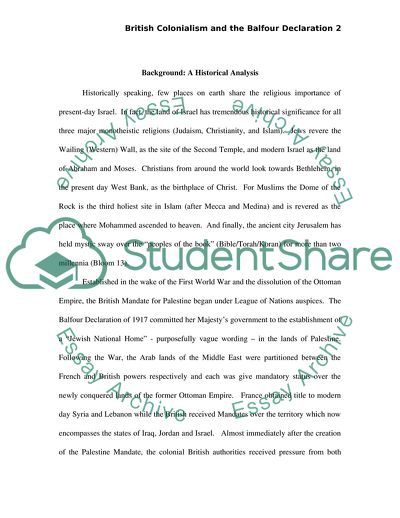Cite this document
(The Balfour Declaration and the Political Legacy of Colonialism Case Study, n.d.)
The Balfour Declaration and the Political Legacy of Colonialism Case Study. https://studentshare.org/history/1726088-survey-of-world-history
The Balfour Declaration and the Political Legacy of Colonialism Case Study. https://studentshare.org/history/1726088-survey-of-world-history
(The Balfour Declaration and the Political Legacy of Colonialism Case Study)
The Balfour Declaration and the Political Legacy of Colonialism Case Study. https://studentshare.org/history/1726088-survey-of-world-history.
The Balfour Declaration and the Political Legacy of Colonialism Case Study. https://studentshare.org/history/1726088-survey-of-world-history.
“The Balfour Declaration and the Political Legacy of Colonialism Case Study”. https://studentshare.org/history/1726088-survey-of-world-history.


